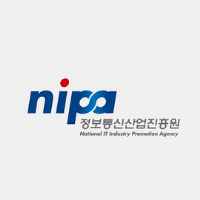10 reasons why the K-Startup Grand Challenge is your gateway to Asia and the world
With access to state-of-the-art R&D facilities, a $240,000 prize pool, grants worth more than $10,000 and support from big Korean corporates, this global startup accelerator programme can help scale your startup beyond India. Here’s why you should apply
After the resounding success of its 2019 edition, the K-Startup Grand Challenge is back for 2020! A project by South Korea’s National IT Industry Promotion Agency (NIPA), the programme invites startups from overseas to leverage Korea's prominent startup ecosystem to expand across Korea and Asia. Launched in 2016, it aims to provide startups from around the world with the required support, investments and opportunities to launch their business in Asia.
Here are the top 10 reasons why you should apply for the K-Startup Grand Challenge this year
1.Gateway to Asia
South Korea is at the forefront of the Asian region, with strategic access to other Asian markets like Japan, China, Hong Kong and Taiwan, thus opening up a world of possibilities for your startup.
2.Cutting-edge technology
Apart from having the world’s fastest internet speeds and smartphone penetration rates, Korea is also the leading manufacturer and consumer of cutting edge electronics and digital products. The adoption of emerging technologies such as AI and blockchain signals that Korea is ready for innovation.
3.Living expenses covered
Each of the 60 startups selected for the programme will receive $10,840 (₩12,250,000 per team of one person), or $15,490 (₩17,500,000 per team of two people) to cover the living expenses in South Korea over 3.5 months from August to November 2020.
4.Get funded
The top 30 startups selected on the demo day will be eligible to receive further grants of $10,840 (₩12,250,000 per team of one person) and $15,490 (₩17,500,000 per team of two people) for 3.5 months -- January to April 2021. Additionally, there’s a prize pool of $240,000 for five selected startups.
5.A special startup campus
Each of the 60 startups will work out of Korea’s new Startup Campus in Pangyo, located within a walking distance of many of Korea’s top tech companies and is just a 14-minute subway ride from Gangnam - its thriving business district.
6.Access to world-class R&D
Startups will get access to Korea’s state-of-the-art R&D labs for prototyping, testing and expert support. One Korean intern will also be assigned per two teams to help lower language and cultural barriers while pursuing local business.
7.Collaboration and networking
In recent years, several major Korean companies have expressed interest in collaborating with startups from around the world. The K-Startup Grand Challenge will offer you the opportunity to interact with some of the most innovative and influential Korean companies.
8.Get mentored by leaders
Startups will have access to 1-on-1 mentoring, information sessions, coaching on Korean and Asian business culture, and seminars on topics like patents, accounting regulations, tax laws and more.
9.Support from Corporates
Some of Korea’s largest tech companies will also participate in various seminars, workshops, and 1-on1 mentoring, giving you the opportunity to partner with them to receive support, resources or expertise.
10.Additional investment potential
Startups will have access to VCs and investors who may choose to invest in your venture. The programme’s accelerators may also make equity investments in the most promising startups.
Apply today!
Listen to what the winners and finalists of previous editions of the K-Startup Grand Challenge have to say about their experience of scaling up in Korea, the opportunities provided by KSGC, and how innovation and technology have kept Korea running in the Covid-19 pandemic.









